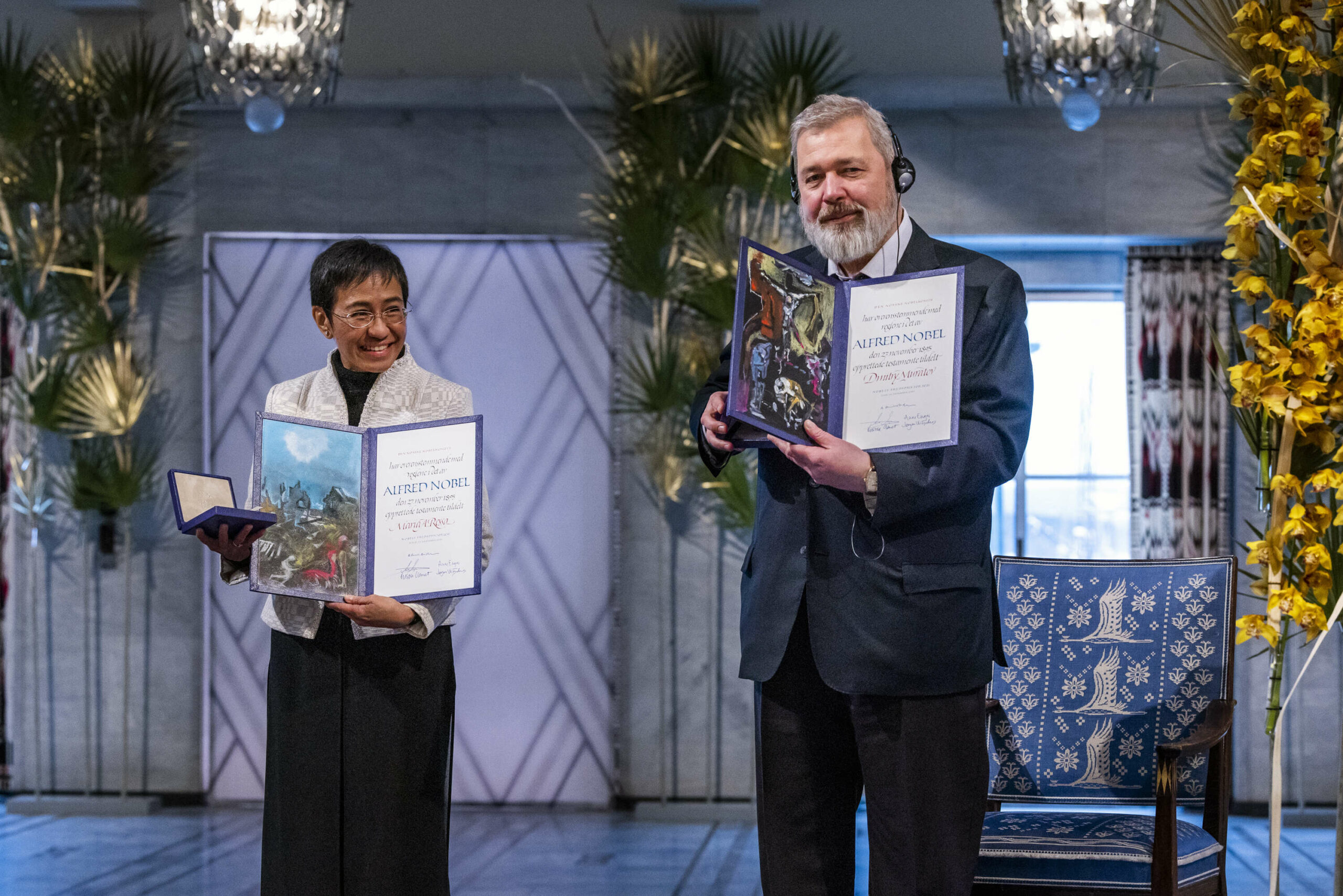Acclaimed journalist and Rappler CEO Maria Ressa took the stage on Dec. 10 as the first Filipino to receive the Nobel Peace Prize.
READ: PH journalist Maria Ressa wins 2021 Nobel Peace Prize
In her acceptance speech, Ressa shed light on the plight of journalists all over the world who are being persecuted for their practice. She mentioned the recent killing of Filipino reporter Jess Malabanan and the continued detainment of young journalist Frenchie Mae Cumpio.
Malabanan was shot dead at home in Samar on Dec. 8. He was a defense reporter in the 1980s and aided Reuters in reporting drug war stories which won the Pulitzer Prize in 2018.
Meanwhile, Cumpio still awaits her day in court for allegedly possessing illegal firearms, a common charge among activists and journalists. She was arrested along with four activists on February 7, 2020 in a raid of “identified Commmunist Terrorist Group safe houses.”
Ressa highlighted the dire situation of press freedom and democracy in the country from media killings to the ABS-CBN franchise denial. She also emphasized the role of big technological corporations as the “new gatekeepers” in the world’s “information ecosystem.”
“It has allowed a virus of lies to infect each of us, pitting us against each other, bringing out our fears, anger, hate, and setting the stage for the rise of authoritarians and dictators around the world,” she said.
The peace laureate said that the world’s greatest need today is to transform the hate and violence propagated by American tech companies that greatly profit off a polarized society.
“In order to be the good, we have to believe there is good in the world,” Ressa said.
As the only woman among this year’s 13 laureates, Ressa puts a spotlight on “gendered disinformation” that threatens the safety of minority groups all over the world.
“Women journalists are at the epicenter of risk. This pandemic of misogyny and hatred needs to be tackled now. Even there, though, we can find strength. After all, you don’t really know who you really are until you’re forced to fight for it,” she said.
Ressa also emphasized that the “surveillance capitalism” of internet companies has real-life consequences that threaten the independence of markets and even national elections.
“What happens on social media doesn’t stay on social media. Online violence is real-world violence,” she said.
She mentioned how, as a result of huge disinformation and historical distortion efforts, dictator’s son Ferdinand Marcos Jr. is a front-runner in the country’s 2022 presidential race.
“How can you have election integrity if you don’t have integrity of facts?” she said.
The Nobel awardee called for the formation of institutions and legislation that would safeguard the values of journalism in the age of social media where hate and disinformation exploded like “an invisible atom bomb.”
“We need information ecosystems that live and die by facts,” she said. “We do this by shifting social priorities to rebuild journalism for the 21st century while regulating and outlawing the surveillance economics that profit from hate and lies.”
She also called for the support of independent journalism and standing up against “states which target journalists.”
Ressa has been served 10 arrest warrants in the last two years and is currently facing six active cases. Before her flight to Oslo, Solicitor General Jose Calida tried to block the Court of Appeals from granting Ressa a court approval to receive her award. Calida called Ressa a “flight risk” for “her recurring criticisms of the Philippine legal processes in the international community.”
Nevertheless, the journalist in Ressa remains steadfast.
“Democracy has become a woman-to-woman, man-to-man defense of our values,” she said. “We’re at a sliding door moment, where we can continue down the path we’re on and descend further into fascism or we can choose to fight for a better world.“ DZUP

